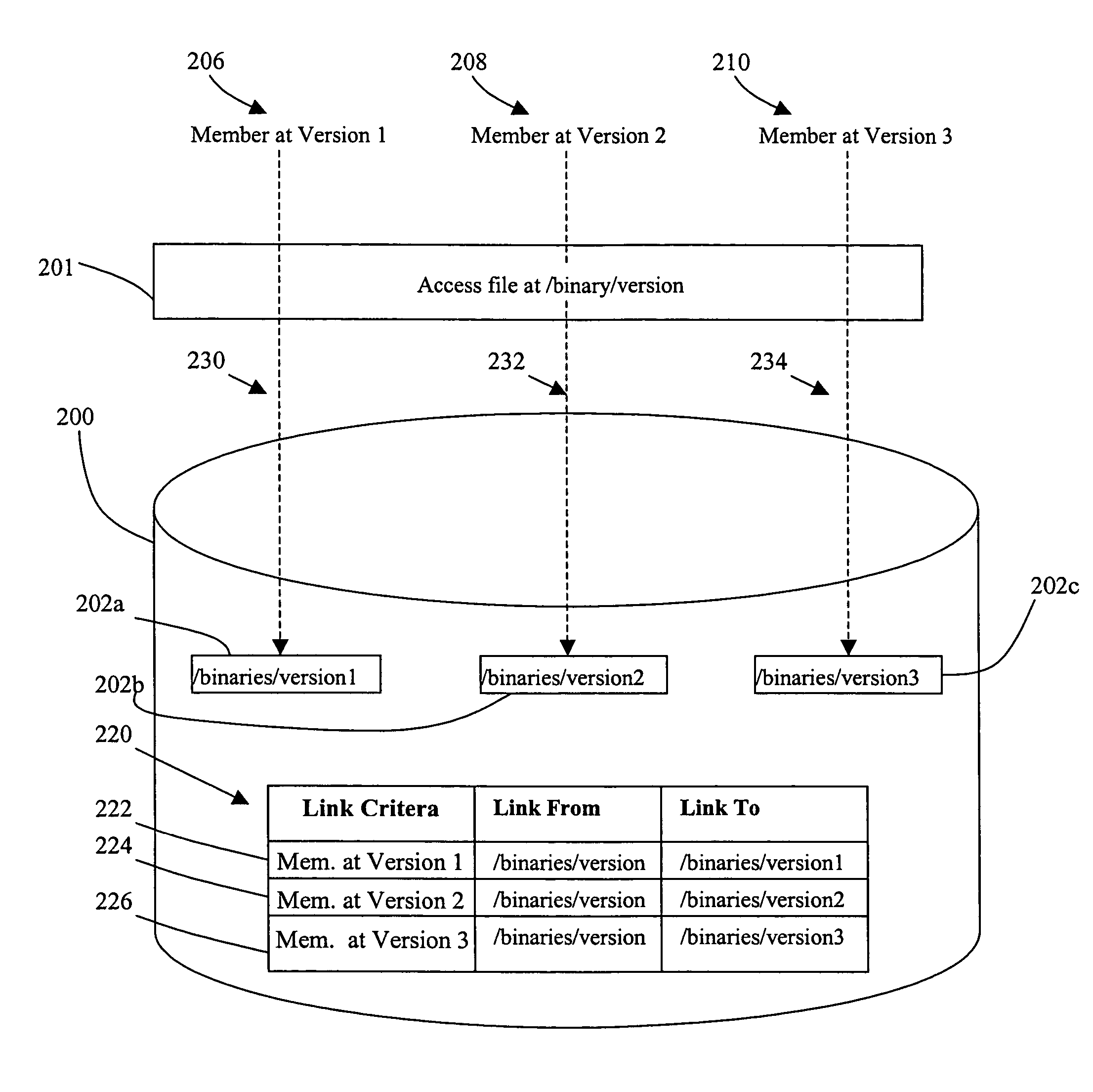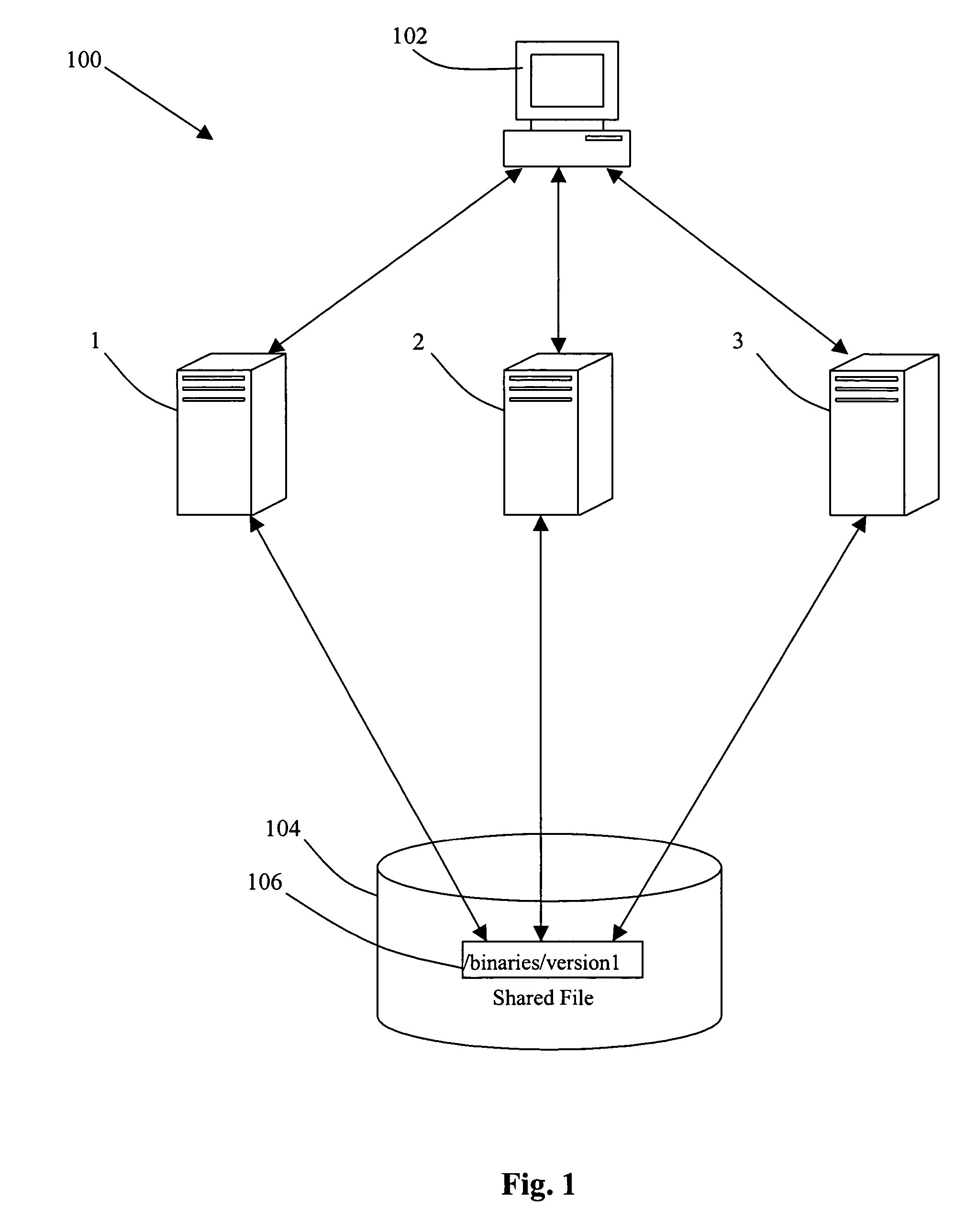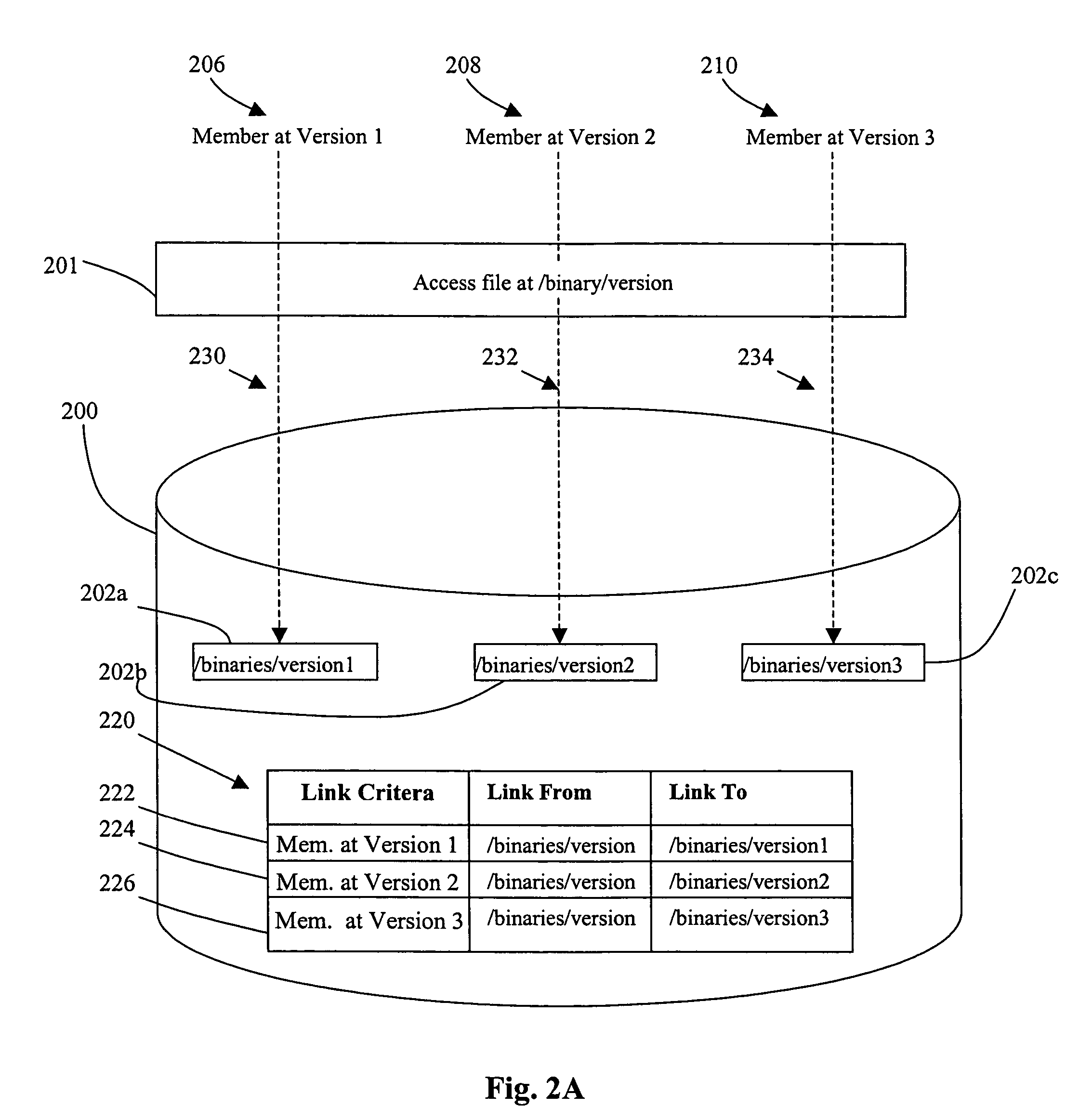Method and mechanism for performing a rolling upgrade of distributed computer software
a distributed computing system and software upgrade technology, applied in computing, instruments, electric digital data processing, etc., can solve the problems of system total unavailability, coding errors in most software, productivity and financial losses of organizations, etc., to improve performance and availability for users, and eliminate or minimize extraneous downtime
- Summary
- Abstract
- Description
- Claims
- Application Information
AI Technical Summary
Benefits of technology
Problems solved by technology
Method used
Image
Examples
Embodiment Construction
[0018]The present invention provides a method and mechanism for performing a rolling upgrade to shared software installations in a distributed environment, e.g. for a networked, shared filesystems. The present approach eliminates or minimizes extraneous downtime when performing a rolling upgrade, thereby improving performance and availability for users of the shared software installation.
[0019]FIG. 1 shows an example of a system 100 in which multiple networked members 1, 2, 3 access shared files 106 in a shared file system. Assume that each of the members 1, 2, and 3 are servers running an enterprise software that support a large number of clients 102 in the system 100. The installed software application running on each of the members 1, 2, and 3 are executed from the shared files 106 in the shared file system rather than from application executables in their private file systems.
[0020]In this type of architecture, performing a rolling upgrade could cause significant downtime in the...
PUM
 Login to View More
Login to View More Abstract
Description
Claims
Application Information
 Login to View More
Login to View More - R&D
- Intellectual Property
- Life Sciences
- Materials
- Tech Scout
- Unparalleled Data Quality
- Higher Quality Content
- 60% Fewer Hallucinations
Browse by: Latest US Patents, China's latest patents, Technical Efficacy Thesaurus, Application Domain, Technology Topic, Popular Technical Reports.
© 2025 PatSnap. All rights reserved.Legal|Privacy policy|Modern Slavery Act Transparency Statement|Sitemap|About US| Contact US: help@patsnap.com



